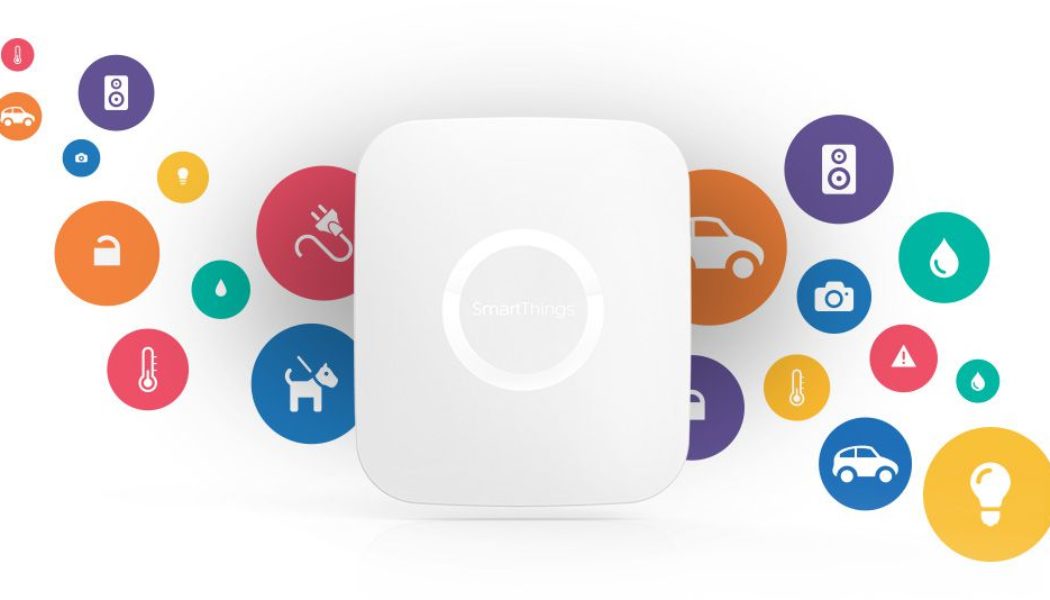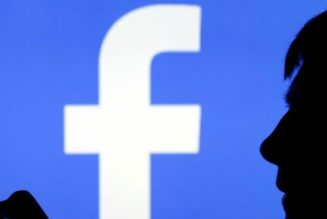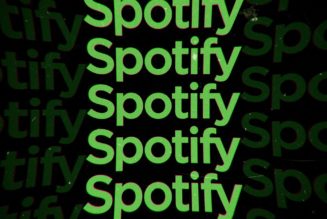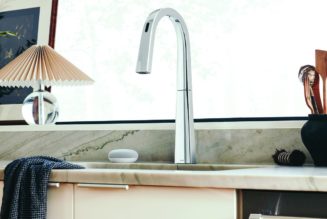The Matter smart home train is picking up steam. Following Google’s commitment to the new standard at its developer conference last week and Apple’s addition of Matter support in iOS 15 at WWDC, Samsung is now following suit. The company announced a complete adoption of Matter across Samsung’s Galaxy devices, televisions, Family Hub appliances, and SmartThings hubs at SDC21, its virtual developer conference being held this week.
A founding member of the Matter group (formerly known as Project ChiP), Samsung also announced that it has joined the Thread Group Board of Directors, where it will sit alongside the likes of Apple, Google/Nest, Lutron, Qualcomm, and Silicon Labs to shape the future of the primary protocol that Matter devices will run on.
Matter is a new connectivity standard created through an industry collaboration that aims to become the de-facto smart home application protocol. Once it goes live in early 2022, the idea is to simplify the purchase and setup of connected devices.
With Matter, consumers should be able to buy any Matter-compliant smart home device and know it will work with their smart home platform and voice assistant of choice, regardless of who made it. They should also be able to set up and connect each device with the same process, using the same app, to make the whole thing as easy to do as screwing in a light bulb used to be.
:no_upscale()/cdn.vox-cdn.com/uploads/chorus_asset/file/6384453/products-hub.e9aba541.0.jpg)
With Samsung SmartThings adopting Matter, it will be possible to add devices that previously couldn’t connect to the SmartThings app or hub and, in reverse, connect SmartThings compatible devices to other Matter-enabled smart home ecosystems. For example, an Eve LED light strip that previously only worked with Apple’s HomeKit could be added to and controlled by the SmartThings app.
Consumer choice is the significant feature here. If you like using the Google Home app, the SmartThings app, or the Apple Home app to control your devices, you can do so without having to worry if it’s Google-enabled, SmartThings-enabled, or HomeKit-enabled. If it works with Matter, it will work with all three apps and all three compatible voice assistants (along with many more).
SmartThings, founded in 2015, was already one of the most open platforms of the big smart home ecosystems, offering support for both Zigbee and Z-Wave protocols, and now, it’s adding Matter. Regarding which SmartThings products will be Matter-enabled, Samantha Fein, Vice President of Business Development and Marketing at SmartThings, said the SmartThings app would be fully Matter-enabled, and all existing SmartThings hubs will adopt the standard, including those now being made by Aeotec.
In terms of Samsung products, Samsung will enable Matter as a controller for its televisions and smart appliances, “As well as other Galaxy products,” Fein said. She couldn’t share specific product names as they are still working on the rollout, which will begin next spring. But it’s safe to assume, at this stage, that will include Samsung smartphones to enable easy setup and control of Matter-enabled smart home devices.
Samsung also announced that it will build SmartThings hubs into its TVs and Family Hub refrigerators. This means, in theory, there should be no need for a separate SmartThings hub device. This is something Samsung had previously announced but is only just implementing. Fein couldn’t confirm if there would be upgrades for existing televisions and smart fridges or if this would only apply to new devices going forward. But she did confirm that it will be a software-based “hub,” saying there will not be smart home radios in the products, as there are in the existing stand-alone hubs.
However, when pressed about the future potential for a smart fridge or TV to be a Thread Border Router, she hinted that would be possible. “We’re very excited about the future and utilizing Matter as a central thought for us around what the future smart home looks like,” Fein said. Thread is the low-powered mesh protocol that is a primary way Matter devices will communicate, and border routers are devices that will help extend connectivity throughout a home.
Ultimately, Fein made it clear that SmartThings is moving away from its physical hub-based origins and towards a more integrated hardware experience with Samsung products. The recent launch of SmartThings Edge, which allows cloud-to-cloud-based communications to run locally, even without an internet connection, enables a future where multiple hardware radios might not be necessary to keep a smart home running smoothly. “Directionally, that’s what we’re hoping to achieve,” she said.
As everyone sits around and waits on Matter and its promise of smart home interoperability, there is one company that has been suspiciously silent of late. Amazon has had very little to say on the matter since announcing its Echo speakers will get Matter-support earlier this summer. At this stage, I’ll classify that as slightly worrying for the forward momentum of the adoption of Matter, although we’re not quite at “completely concerning.”
Bixby buzz
Samsung also had a few updates for Bixby, its beleaguered smart voice assistant. While there is no word on whether the Galaxy Home Bixby smart speaker will ever see the light of day — “We … will provide updates on the availability of Galaxy Home in the near future,” said a spokesperson — Bixby is getting a new ability.
:no_upscale()/cdn.vox-cdn.com/uploads/chorus_asset/file/11959599/galaxy_home.JPG)
The Bixby Home Platform announced at the developers’ conference will bring something close to Alexa and Google Home Routines to the voice assistant. Now, with a single voice command, you can execute multiple tasks. For example, if you say “Bixby, play a movie from Netflix,” you can have more than one SmartThings-connected device respond. So the lights could dim, the soundbar would turn on, and the movie begins.









